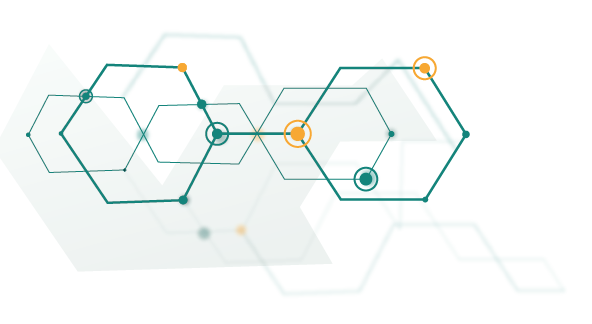Sessions in: Contemporary Societal Challenges
I.1 Science and society in global crises
Erich Griessler, Johannes Starkbaum
Institute for Advanced Studies, Austria
The question how citizens relate to science and technology has received much attention in Austrian public discourse and elsewhere during the pandemic and thereafter. Also, current multi-crises like climate, biodiversity loss, global inequality and military conflicts are entangled with questions that relate to science and technology. Debates on science and society are often caught in everyday political debate, highly charged normatively and occasionally lack empirical and theoretical foundation. Science can be considered a central pilar of (western) modernity and current economy. However, it also contributes to the existing critical situation of our societies and the environment. Public discourse of science, as well as its actual roles of science and technology, differ across Europe and in global perspectives. However, respective debates typically focus on citizens rather than on science and other parts of society. However, social, political, economic, and cultural aspects must be taken into consideration as well. The session wants to instigate a broad discussion on the role of science in current modernity, its role in existing multiple-crises and its potential contribution to solve them. We welcome theoretical and empirical papers, as well as other forms of expression, that address the role of science in current societies and existing crises. Also, we welcome contributions that continue the discussions of the STS Graz 2023 session that focused on science scepticism.

I.2 No Ghosts in the Shells – Doing ethnography with digital inhabitants
Fernando Galdino Pedron, Michele Varini
Independent Consultant, Germany
We want to host a salon to discuss new methods and approaches to explore the rinsing phenomenon of this digital age we are living in, with major attention referred to new/disruptive approaches, mainly referring to digital inhabitants of digital spaces, guiding an open discussion under Chatham House Rule.
Digital spaces, including but not limited to video games, have been growing over the past decades. All societal subjects have benefited greatly from digital progress, and sociology and the social sciences as a whole are no exception. Social scientists are called, beginning with these concerns, to include new techniques and technology advancements into all they study, so modifying and innovating the traditional toolkit of scientists. Social scientists today have additional issues as a result of the huge changes in digital platforms, media, and particularly apps (Light, 2016). These platforms have a major impact on socio-cultural, economic, health, relationships, and entertainment transformations (Light, Burgess & Duguay, 2016). The investments in “metaverses” and upcoming developments such as the Apple Vision indicate that we will see more mixed reality and fully digital spaces and that these spaces might be populated not only by human users but also by “AI-generated” digital entities.
Salon: In a Salon, we gather a small group of researchers (30 max.) with a host to discuss pressing topics for the community. Commonly associated with French literary and philosophical movements of the 17th and 18th centuries, Salons offer a horizontal discursive space, promoting the spontaneous interactions and serendipitous connections that make them ideal for networking. Hosts select short readings that participants are expected to complete in advance to ignite the chat.
Chatham House Rule: When a meeting, or part thereof, is held under the Chatham House Rule, participants are free to use the information received, but neither the identity nor the affiliation of the speaker(s), nor that of any other participant, may be revealed.
Sources:
Cavagnuolo, M., Capozza, V., & Matrella, A. (2021). The walkthrough method. In Advances in knowledge acquisition, transfer and management book series (pp. 461–486). https://doi.org/10.4018/978-1-7998-8473-6.ch028
https://2016.epicpeople.org/salons/index.html,
https://www.chathamhouse.org/about-us/chatham-house-rule

I.3 Regionalization at play: An exploration of “innovation” in regional governance
Cindy Rentrop, Sophia Knopf
Technical University of Munich, Germany
Recent literature in STS has marked an interest in the innovation-driven governance of regions and urban spaces as they have become part of economic competition and are thus subject to the leitmotif of innovation. Regions compete not only for skilled workers, talents, and expertise but also for renowned institutions and companies. To make or maintain regions as the centers of attraction, policymakers increasingly mobilize and instrumentalize regions. In this process, both the region and innovation become interrelated: Innovation is mobilized as the solution to regional competitiveness, increasingly becoming part of regional strategies; and innovation within a region becomes more and more shaped by these ambitions.
Examples of our research comprise an R&D-driven approach in the region of Munich and an economic strategy in the region of Heilbronn-Franconia. In the case of Munich, the Munich Cluster for the Future of Mobility in Metropolitan Regions (MCube) seeks to make Munich a pioneer for sustainable and transformative mobility innovations. In Heilbronn, we can observe how an overall economic strategy transforms the urban space’s innovation culture and with it the local socioeconomic order.
Within our panel, we want to address questions like: What does it mean for a region to be innovative? How are such claims towards innovation made, and how is its innovative nature mobilized? How does “the region” or “a city” become visible through these efforts? What does it mean to be an (inter-)national role model? How are certain futures of a region becoming more plausible than others through the mobilization of innovation? What are the imaginaries and promises surrounding certain innovative measures, such as establishing smart cities, digital urban twins, test beds or specific technology hubs, and how do these take shape based on the specific regional context? Which different governance approaches can be derived from the empirics?
The purpose of this panel is to explore in which ways both the governance of regions and the governance of innovation are brought together and how “the region” is mobilized and instrumentalized for claims towards a desirable future in the innovation discourse. We are keen on theoretical and empirical contributions that examine the dynamics, practices, and meanings behind the governance of regions towards innovation.

